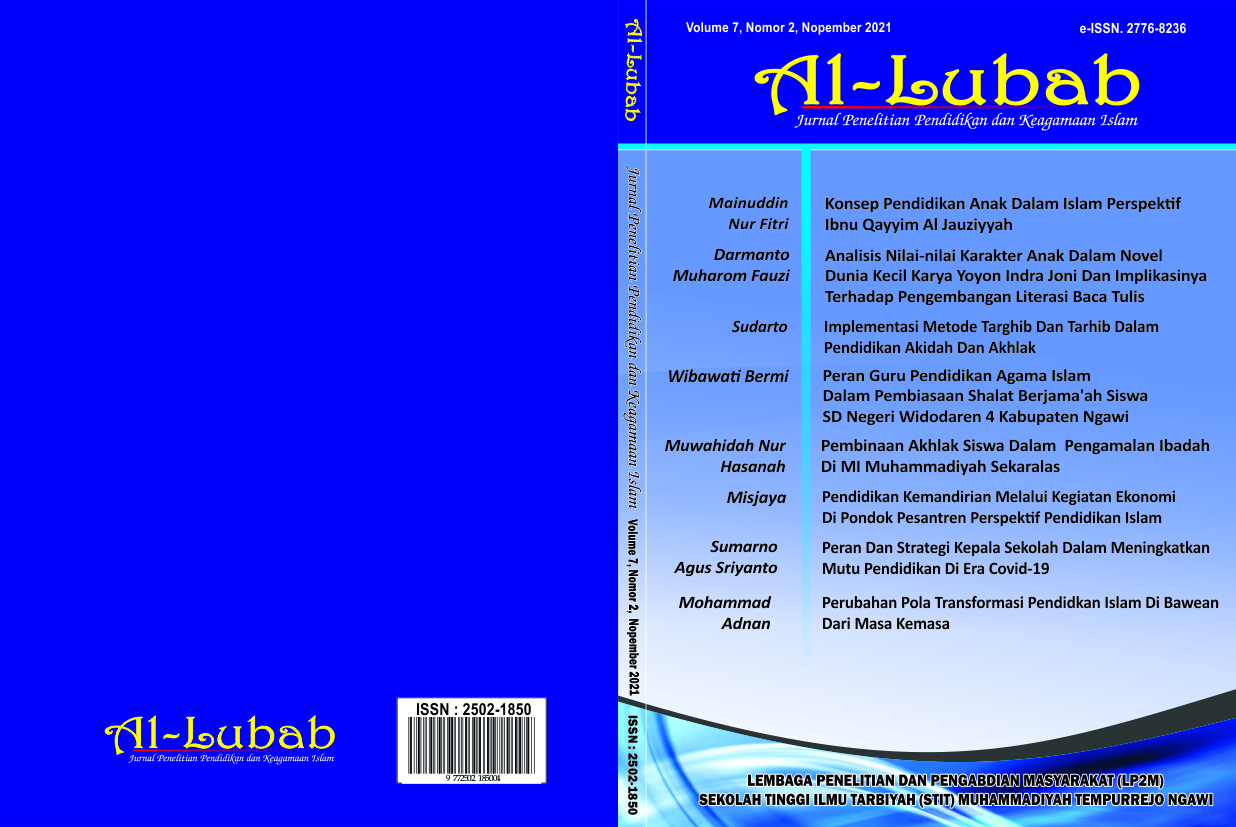PEMBINAAN AKHLAK SISWA DALAM PENGAMALAN IBADAH DI MI MUHAMMADIYAH SEKARALAS
Abstract
The formation of ethics in students must be in accordance with Islamic teachings, including the teachings of truth, honesty, courtesy, compassion, etc. Being parents have to teach their children with the help of sticking to the morals in the lifestyle and usually getting used to setting a moral example that is closer to the children. The practice of worship training is basically a continuation of the education of parents or family. In Islam, moral development is a medium for recognizing schools based on the Islamic creed and the Shari'a for the realization of self-slavery to Allah SWT, the attitude of unity and the development of every skill and human capacity in accordance with their nature (tauhid) so that humans will stay away from deviations that are not justified by means of faith.
As a teacher he should be an example and role model for his students and in all subjects he can instill faith and morals in accordance with Islamic teachings. So to educate children about morality apart from setting a good example we must also show respect for them. Educators must have the heart and ability to educate students so that they become children of noble character who are able to transform bad morals into good ones. Practicing ethics or behavior will not be enough to be taught as a lesson with heart consequences or to pass a written exam. The daily behavior of a student, especially at school, will be tied to the existing environment. Ironically, it is even impossible to do if children are required to behave commendable when school life is so full of vile elements. Children will laugh when they need to be disciplined if teachers and staff misbehave.
Keywords: Coaching, Morals, Worship







